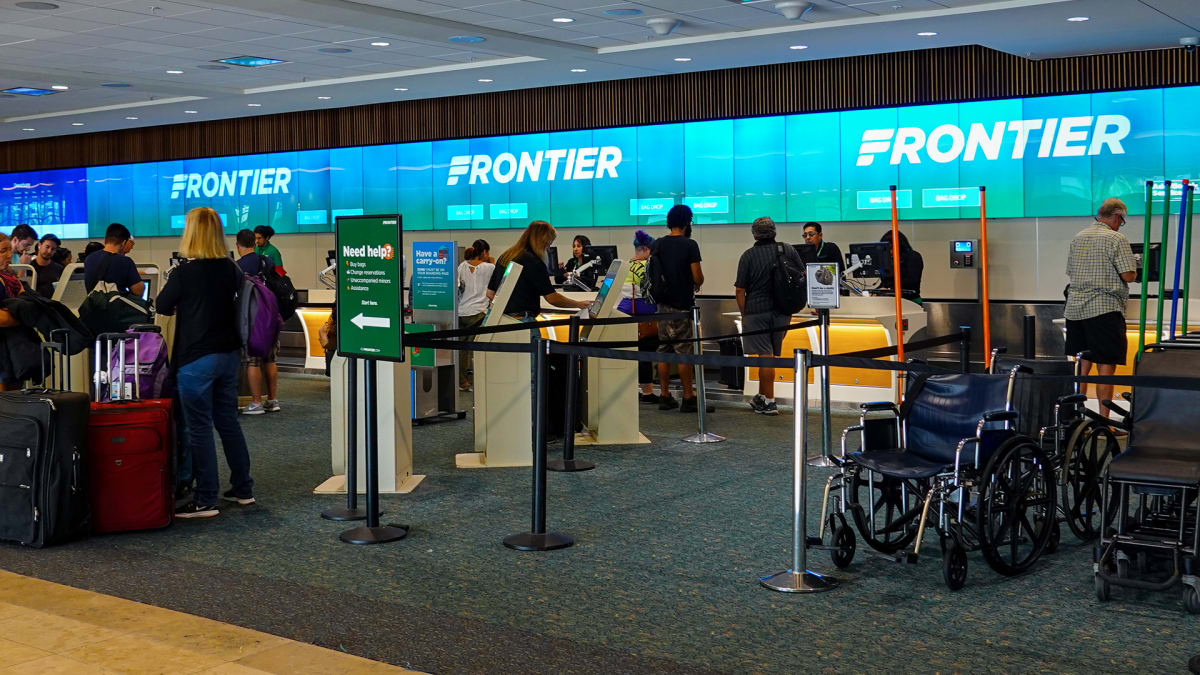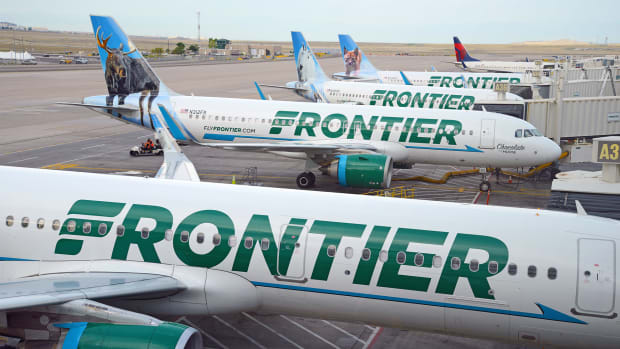
Frontier Airlines has a no-frills, low-cost model that's essentially an a la carte air travel service, Your base ticket buys you a seat on the plane and the ability to bring a small personal item with you.
You don't get a seat assignment, the right to check bags or bring a full-size carry-on. In addition, passengers pay extra for water, soft drinks, coffee, and tea (which are generally free on most airlines). It's a system designed to offer the lowest possible fare while allowing people to pick which add-ons they need.
DON'T MISS: Southwest Airlines Tries Another Fix For a Big Boarding Problem
The problem -- and it's a big one -- is that passengers either don't know the baggage rules or openly try to evade them. This has led to tense situations at gates where passengers and airline employees have yelled at each other when the airline makes people pay for oversized bags.
That's something Frontier Airlines Senior Vice President Daniel Shurz spoke about in an interview with Travel Weekly's Robert Silk.

Frontier Has a Clear Bag Policy
The biggest challenge for Frontier appears to be the difference between a "personal item,' and a "carry-on" bag. Both are carried on the plane by the passenger, but the carry-on bag comes with an added fee (that's higher at the gate than if you paid for it before boarding).
Frontier defines what it means by a personal item on its website.
"Size: 14"H X 18"W X 8"D including handles, wheels, and straps," the airline posted."Think purses, totes, computer bags, briefcases, diaper bags, and kids' backpacks."
The airline makes it clear that it's going to check your bag when you board adding the following in bold type:
"The size of your personal item will be checked during boarding. Items larger than the allowed dimensions are subject to an additional charge," the airline added.
Frontier Will Enforce Its Bag Policy
Frontier has a problem in that some people simply don't understand the rules while others my have a purse or laptop bag that exceeds the size allowed. That forces the gate agent to check the bag and ask that the passenger pay.
Shurz told Silk that he believe the enforcement will eventually solve the problem, but he also shared a pretty harsh view of his customers.
"As prices for bags rise, the incentive for customers to try and steal goes up, of course, and our incentive to make sure we treat everyone fairly and equitably also goes up," he said. "Having decided to get more consistent in enforcement, customers are going to notice, and they'll save money if they just buy the product they need when they first buy the ticket. Once this message is fully socialized, no matter what the price, there will be fewer customers trying to get away with not paying for the bag."
Accusing your customers of "stealing" when many may simply not know or understand your policies is a bit harsh, but Shurz says the practice has been working.
"I look to the fact that over 90% of our customers pay for what they use. It's fairer and more equitable if we make sure that 100% pay for what they use. We knew the initial period would be the hardest period to do it. I fly the airline regularly. It's going much more smoothly today than it was six months ago," he added.

.png?w=600)





